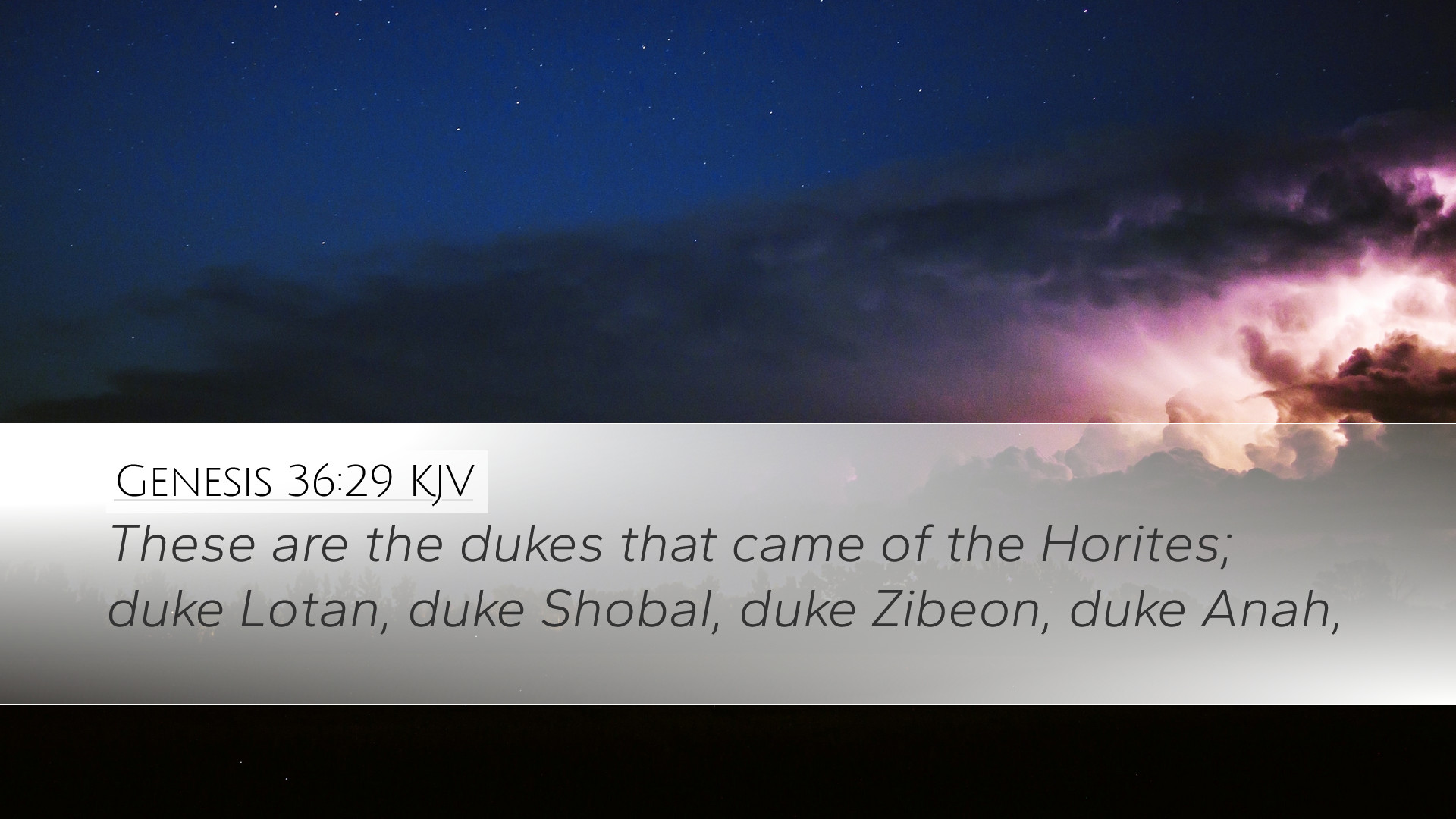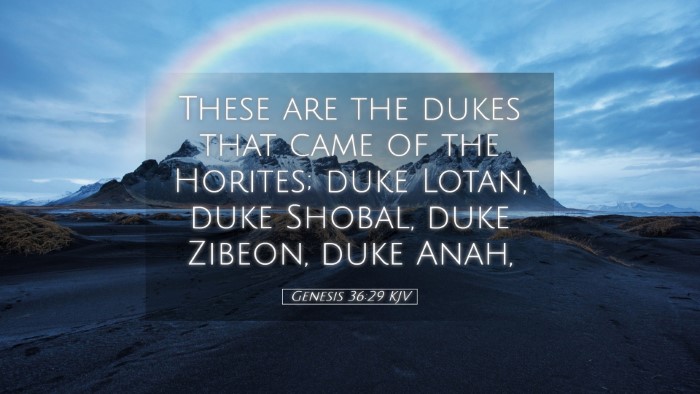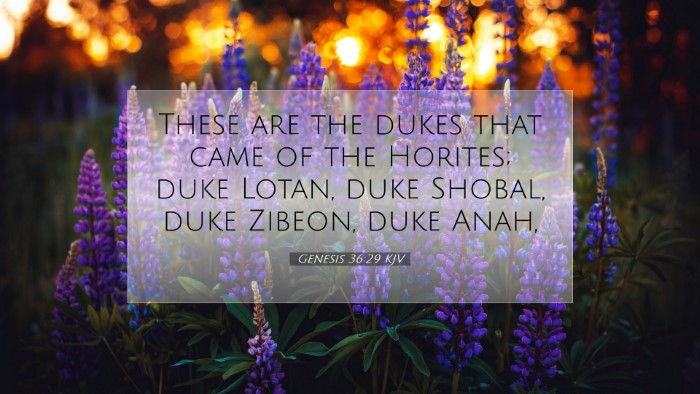Commentary on Genesis 36:29
Genesis 36:29 states:
"These are the kings that reigned in the land of Edom, before there reigned any king over the children of Israel."
Introduction
This verse transitions us into the historical narrative of the Edomites, a nation descending from Esau, whose legacy is intertwined with that of Israel. The focus here is on the leadership of Edom prior to Israel's monarchy, setting the stage for understanding the significance of both nations in biblical history.
Commentary Insights
-
Historical Context
This passage highlights a period of political structure in Edom. Previous commentaries, such as those by Matthew Henry, elucidate that the Edomite kings had established their kingdom before Israel experienced monarchical governance. This timeframe accentuates the idea of divine sovereignty at play, as God orchestrated the rise and fall of nations.
-
Nomenclature of Kings
Albert Barnes notes the significance of the list of kings presented in this chapter. Such lists serve not only to affirm the authority of these leaders but also to provide a tangible link to God's plan, demonstrating the unfolding of history according to divine will.
-
Theological Implications
Adam Clarke offers a profound observation regarding Edom's kingship as a reflection of the broader theological themes of authority and governance. The reign of these kings serves as a backdrop for understanding Israel's future kings and the ultimate kingship of Christ, who reigns eternally.
Literary Structure
The verse fits within a genealogical framework that stresses lineage and heritage. This aligns with theological themes of people groups and God's promises to Abraham, Isaac, and Jacob. As such, the narrative reflects both the historical significance of Esau's descendants and their role in the larger biblical narrative.
Contrast with Israel
The assertion that Edom had kings before Israel emphasizes a dichotomy in governance styles: Edom's monarchical leadership in contrast to the theocratic rule that was to develop within Israel. Matthew Henry remarks on this distinction as a divine design, positioning Israel under the unique guidance of God as their King and Lawgiver.
Lessons for Today
In modern applications, this verse yields significant lessons on leadership and governance. The authority of kings of Edom, although earlier in chronology, serves as a reminder of humanity’s penchant for power. The early establishment of a human monarchy begs the question of the balance between secular and divine leadership.
-
Human Authority vs. Divine Sovereignty
The narrative urges contemporary readers to consider the authority that they ascribe to leaders and institutions. God's sovereignty permeates history, challenging believers to look to Him for guidance over temporary human institutions.
-
The Role of Heritage
An awareness of one's heritage—as seen in the specificity around Edom's kings—can inform our understanding of identity and purpose. It’s crucial for believers today to recognize their identity as part of God’s covenant people, echoing the promises made to Israel.
Conclusion
Genesis 36:29 stands as a pivotal point in the biblical historical narrative, linking the fate of Edom with that of Israel while weaving in crucial theological and historical insights. By examining the ruling system in Edom before Israel's kingship, the larger narrative of Scripture invites readers to reflect on God's overarching authority throughout history.


